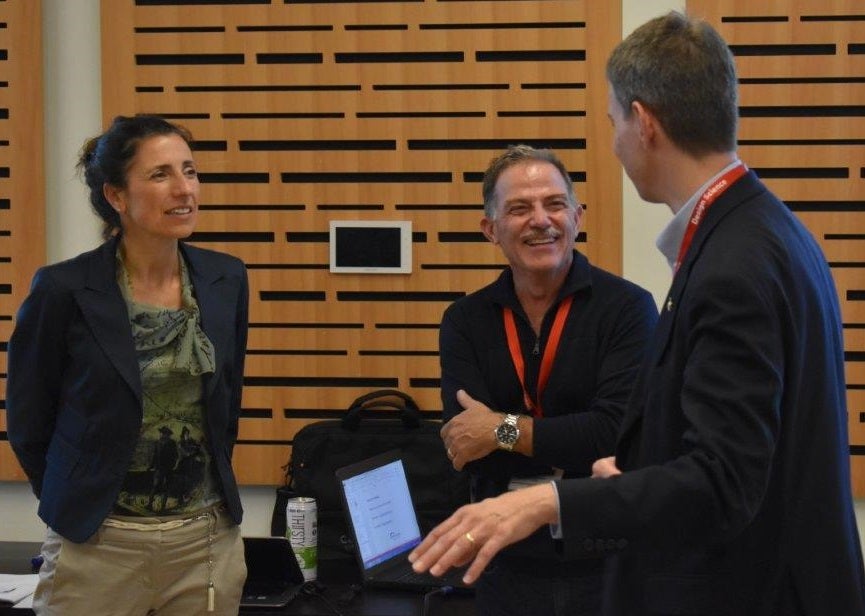Oscar Nespoli struggles to sum it up in a word or two, but he’s sure there is a lot more to good engineering design than knowing hard facts and following prescribed steps.
And regardless of whether it’s called art, intuition, feel, craft or any number of other things, the University of Waterloo instructor is determined to learn from how actual design practitioners do exceptional work in their fields.

Oscar Nespoli, centre, chats with participants during a workshop in Vancouver this week on design practice.
The problem is, it’s not as simple as just asking them.
“There is a recognition in professional practice that expert designers know a lot more than they can tell or they can share,” said Nespoli, a lecturer in the Department of Mechanical and Mechatronics Engineering. “They can’t articulate it because they just do it.”
In an effort to get at those important intangibles in other ways, Nespoli founded a special interest group this year within the Design Society, an international non-profit organization for members who share a common interest in design.
One approach to gaining insight into good design in practice was employed this week at a conference in Vancouver, where Nespoli led a workshop that brought together academics, graduate students and working designers from various fields.
Participants were presented with two authentic design challenges - chosen from suggestions that had been widely invited from practice prior to the conference - then broke into groups to tackle them from their different perspectives and using their different approaches.
One of the challenges involved designing a better EpiPen for people with severe allergies. The other concerned the urban infrastructure that will be needed for the safe, efficient operation of self-driving vehicles.
Challenges the 'catalyst' for collaboration
“The challenges are a catalyst to get everybody collaborating and learning from each other,” said Nespoli, co-creator of a unique design specialization within the Professional Master of Engineering Degree (MEng) at Waterloo.
The ultimate aim of such exercises is to capture and study the techniques and approaches of good design as it is actually practiced so that lessons can be gleaned by researchers and shared in the academic world.
“I really disagree with the notion that things only go from theory to practice,” Nespoli said. “I think they go both ways. This is an attempt to develop that counterflow.”
Although a group at Waterloo has been developing and using case studies to enhance engineering education for well over a decade, he said, Canada as a whole lags behind countries such as Sweden, Germany and the United Kingdom when it comes to research to “find out what this business of design is all about.”